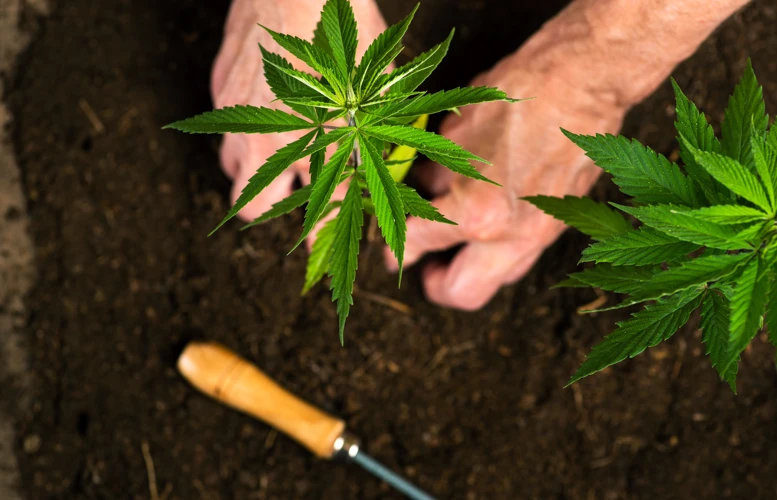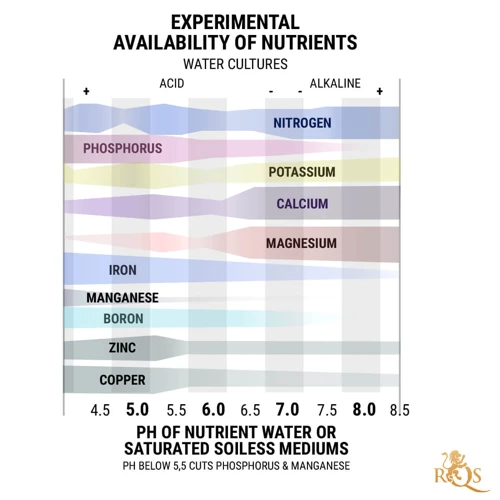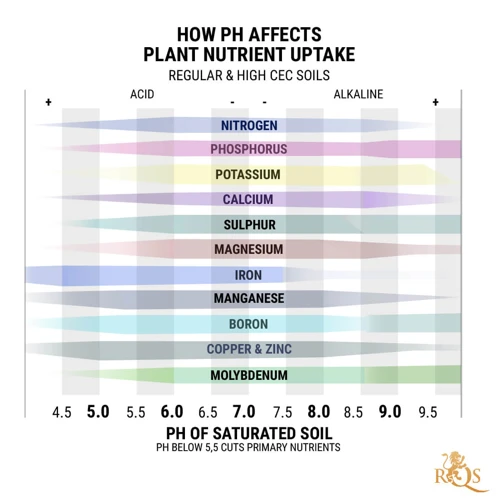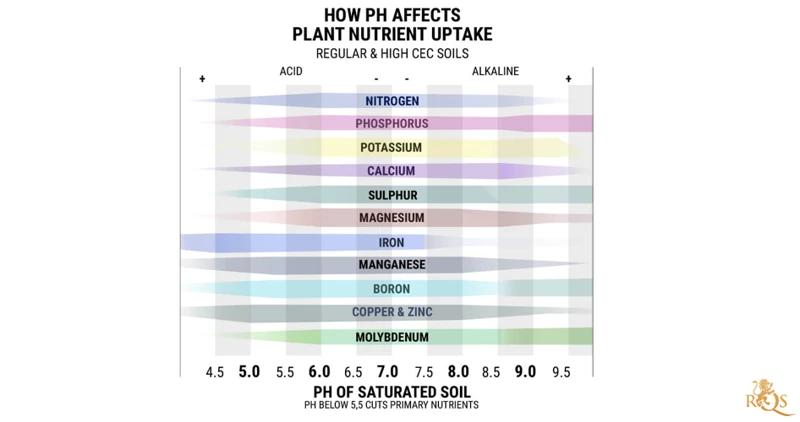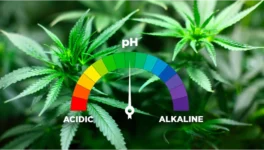
Why Soil pH is crucial for Growing Cannabis
Introduction
Contents
Growing cannabis is a complex and nuanced process that requires careful attention to detail. One of the most important factors for successful cannabis cultivation is soil pH. Soil pH refers to the level of acidity or alkalinity in the soil, and it can have a major impact on the health and growth of your cannabis plants. In this article, we will explore the importance of soil pH for growing cannabis and provide a step-by-step guide for testing, amending, and monitoring soil pH levels throughout the growth process. Whether you’re a seasoned cannabis grower or just starting out, understanding the critical role of soil pH is essential for achieving the best possible harvest.
What is Soil pH?
Soil pH is a measure of the acidity or alkalinity of soil. A pH of 7 is neutral, lower than 7 is acidic, and higher than 7 is alkaline. The pH level is essential for plant growth as it affects the availability of nutrients in the soil. Plants absorb nutrients through their roots, and the nutrient uptake is affected by the pH level of the soil.
The following are a few facts about soil pH:
- Soil pH varies depending on the region, climate, type of soil, and other factors.
- The pH level affects not only plant growth but also the activity of microbes in the soil.
- The ideal pH level for cannabis cultivation is between 6.0 and 7.0.
- Soil pH can be changed by adding amendments to the soil.
- Regular testing and monitoring of soil pH is important for optimum plant growth.
Soil pH can influence the availability of specific nutrients to plants. For example, iron becomes less available in alkaline soil conditions and more soluble in acidic soils. Similarly, phosphorus becomes less available in alkaline soils and more soluble in acidic soils. It is crucial to maintain the soil pH at the optimal range for the specific plant being grown.
The Importance of Balanced Soil pH
Maintaining a balanced soil pH level is crucial for the successful growth of cannabis plants. The soil pH level directly affects the availability of essential nutrients and minerals to the plant roots. Imbalanced pH levels can cause nutrient deficiencies, stunted growth, and ultimately, a lower yield of buds. It’s crucial to understand the relationship between soil pH and cannabis growth in order to achieve a healthy and flourishing harvest. Let’s explore the significance of soil pH and how it affects cannabis cultivation.
How Soil pH Affects Cannabis Growth
Soil pH plays a crucial role in the growth and development of cannabis plants. The pH level of soil affects the nutrient uptake, root development, and overall growth of the plants. When the soil pH level is too high or too low, it can cause a nutrient deficiency or toxicity, which can have negative effects on the cannabis plant. The following table illustrates the impact of soil pH level on nutrient uptake and plant growth:
| Soil pH Level | Nutrients Absorbed by Roots (in order of availability) | Impact on Cannabis Growth |
|---|---|---|
| Less than 5.5 | Iron, Manganese, Zinc, Copper, Boron | Stunted growth, yellowing of leaves |
| 5.5 – 6.5 | Phosphorus, Potassium, Magnesium, Calcium, Sulfur | Ideal range for nutrient uptake and cannabis growth |
| Greater than 7.0 | Nitrogen | Stunted growth, chlorosis (yellowing) of leaves |
As the table shows, when the soil pH level is too low (less than 5.5), the cannabis plant will have difficulty absorbing important nutrients like iron, manganese, zinc, copper, and boron. This can lead to stunted growth and yellowing of the leaves. On the other hand, when the soil pH level is too high (greater than 7.0), the plant will have difficulty absorbing nitrogen, which can also lead to stunted growth and yellowing of the leaves.
However, when the soil pH level is within the ideal range of 5.5 – 6.5, the cannabis plant is able to absorb nutrients like phosphorus, potassium, magnesium, calcium, and sulfur, which are essential for healthy growth and development. It is important to ensure that the soil pH level is properly balanced to allow for optimal nutrient uptake and healthy growth of cannabis plants.
The Ideal Soil pH Range for Growing Cannabis
The ideal soil pH range for growing cannabis is crucial as it can affect not only the plant’s overall health but also its yield. A pH level that is too high or too low can cause nutrient deficiencies or toxicities, which can impact the plant’s ability to absorb nutrients properly.
Cannabis Soil pH Range:
| Soil pH | Nutrients Available |
|---|---|
| 6.0 – 7.0 | Optimal Range |
| 5.5 – 5.9 | Slightly Acidic, Fewer Nutrients Available |
| 7.1 – 7.5 | Slightly Alkaline, Fewer Nutrients Available |
| Below 5.5 | Very Acidic, Nutrient Toxicity |
| Above 7.5 | Very Alkaline, Nutrient Deficiency |
Ideally, the pH level for growing cannabis should fall in the range of 6.0 – 7.0, as this is the optimal range for nutrient uptake. pH levels lower than 5.5 can cause nutrient toxicity, while levels higher than 7.5 can cause nutrient deficiencies.
If the pH level falls outside the optimal range, it is important to take corrective action to ensure that the plant can absorb nutrients properly. This can be achieved by adding soil amendments that can raise or lower the pH level of the soil in a controlled manner.
Regular monitoring of the soil pH level is important to ensure that the cannabis plant is healthy and thriving. It is recommended to test the soil pH level at least once a month, especially during the vegetative and flowering stages of growth. This allows for any necessary adjustments to be made in a timely manner, ensuring that the plant is receiving the nutrients it needs to grow to its fullest potential.
Testing Soil pH
Determining the pH level of your soil is a crucial step in cultivating healthy cannabis plants. Knowing your soil’s pH level can help you to identify nutrient deficiencies or excesses, which can impact plant growth and yield. It is important to regularly test the pH of your soil throughout the growing process. In the following section, we will discuss various methods of testing soil pH and when you should do so.
Methods of Testing Soil pH
Testing soil pH is an essential step in ensuring the success of cannabis cultivation. There are several different methods used to test soil pH. Below are some of the most common methods used by cannabis growers:
- Soil pH Test Kit: Soil pH test kits are one of the most common methods used to test soil pH levels. These kits are affordable and easy to use. They typically contain a probe and indicator solution that changes color based on the soil pH level.
- Digital pH Meter: A digital pH meter is a more expensive but accurate method to test soil pH. It is a handheld device that measures the electrical potential difference between pH electrodes. As the device measures pH, it displays the results on its LCD screen.
- Chemical Soil Test Kit: A chemical soil test kit is a relatively easy and inexpensive method to test soil pH. It requires mixing a soil sample with chemicals and comparing the resulting color with a chart to determine the pH level.
- Litmus Paper: Litmus paper is a quick, inexpensive and easy way to test soil pH. A small amount of soil is added to water and mixed. Then, a strip of litmus paper is dipped into the soil mixture. The paper changes color according to the pH level. However, this method is less accurate than other methods and should only be used as a rough estimate of the pH level.
Most of these methods are easily accessible to anyone growing cannabis. The choice of method ultimately depends on personal preference, accuracy required, and budget. However, it’s important to use a reliable testing method and follow the manufacturer’s instructions carefully.
When to Test Soil pH
Testing soil pH is an essential part of growing healthy cannabis plants. However, it is important to know when to test the soil to get accurate results. Here are some guidelines to follow:
- Before planting: It is recommended to test the soil pH before planting cannabis seeds or clones. This will give you a baseline reading that you can use to create a suitable growing environment for your plants.
- After adding amendments: If you have added any soil amendments to adjust the pH, you should test the soil again after a few days to ensure that the pH has changed accordingly. Make sure to wait at least a week before testing the soil pH again to give the amendments enough time to take effect.
- During different growth stages: As cannabis plants go through different growth stages, the optimal pH level can change. It is recommended to test the soil pH every few weeks during the vegetative and flowering stages to ensure that the pH level is within the ideal range.
- When you notice plant problems: If you notice any signs of nutrient deficiencies, leaf discoloration, or stunted growth, it could be a sign of an imbalanced pH level. Testing the soil pH can help you identify the issue and make necessary adjustments.
Testing the soil pH is crucial for growing healthy cannabis plants. By testing at the right times, you can ensure that your plants have a suitable pH level to absorb nutrients and thrive.
Amending Soil pH for Cannabis Cultivation
Adjusting the soil pH level is a crucial step in ensuring successful cannabis cultivation. Without balanced pH levels, the plants cannot fully absorb the essential nutrients they require for healthy growth. It is vital to understand the organic and chemical means of raising or lowering soil pH and how to properly apply these amendments to achieve optimal results. In this segment of the article, we will explore various methods of amending soil pH for cannabis cultivation, highlighting the benefits and drawbacks of each approach to help you make an informed decision for your grow.
Organic Soil Amendments for Raising/Lowering pH
When it comes to maintaining the soil pH for cannabis cultivation, there are different types of soil amendments that can be used. One of the options is organic amendments, which are made from natural sources and are considered safe for the environment. Here are some examples of organic soil amendments and their effect on soil pH:
| Organic Amendment | Effect on Soil pH |
|---|---|
| Peat Moss | Decreases soil pH (more acidic) |
| Pine Needles | Decreases soil pH (more acidic) |
| Sphagnum | Decreases soil pH (more acidic) |
| Composted Leaves | Decreases soil pH (more acidic) |
| Lime | Increases soil pH (more alkaline) |
| Eggshells | Increases soil pH (more alkaline) |
| Bone Meal | Increases soil pH (more alkaline) |
It’s important to note that the effectiveness of organic amendments in raising or lowering soil pH depends on factors such as the type of soil being used and the amount of the amendment being added. It’s also important to choose organic amendments that are appropriate for cannabis cultivation and have minimal risk of introducing harmful pathogens or contaminants to the soil.
Chemical Soil Amendments for Raising/Lowering pH
When it comes to amending soil pH, chemical soil amendments are another option. These amendments typically work faster than organic amendments, but also come with some drawbacks. Before opting for chemical soil amendments, it’s important to understand the potential negative effects on soil health, as well as any potential risks to the cannabis plants themselves.
Here are some common chemical soil amendments used for raising and lowering pH:
| Soil Amendment | Effect on Soil pH | Notes |
|---|---|---|
| Sulfur | Lowers pH | Sulfur can lower pH quickly and effectively, but it can also take up to several months for the effects to become fully realized. Overuse of sulfur can lower soil pH too much, leading to decreased plant growth and potential toxicity. |
| Lime | Raises pH | Lime can raise pH quickly and effectively, but it can also take up to several months for the effects to become fully realized. Be careful not to over-apply, as too much lime can raise soil pH too much, leading to decreased plant growth and potential toxicity. |
| Phosphoric acid | Lowers pH | Phosphoric acid can lower pH quickly, but it is also highly acidic and can cause damage to plants if not used carefully. It should be used in small amounts and mixed with water before application. |
| Potassium hydroxide | Raises pH | Potassium hydroxide can raise pH quickly, but it is also highly alkaline and can cause plant damage if used in excess. It should be used in small amounts and mixed with water before application. |
Note: When using chemical soil amendments, it’s important to follow the manufacturer’s instructions carefully and wear protective gear such as gloves and a mask. It’s also important to avoid overuse, as this can lead to soil imbalances and harm to the cannabis plants. It’s best to start with a small amount of amendment, monitor the results regularly, and adjust as needed over time.
How to Apply Soil Amendments
When it comes to applying soil amendments for cannabis cultivation, there are different methods depending on whether you are using organic or chemical amendments. Here’s how to apply soil amendments for growing cannabis:
| Organic Soil Amendments |
|:—-|
| 1. Compost: Spread 1-2 inches of compost over the soil and till it in. |
| 2. Manure: Spread 1-2 inches of well-rotted manure over the soil and till it in. |
| 3. Bone meal: Mix 5-6 pounds of bone meal per 100 square feet of soil. |
| 4. Wood ash: Spread 5-6 pounds of wood ash per 100 square feet of soil. |
| 5. Peat moss: Mix 1-2 inches of peat moss into the soil using a tiller. |
| Chemical Soil Amendments |
|:—-|
| 1. Sulfur: Broadcast sulfur over the soil and till it in. Follow the package instructions for the proper amount. |
| 2. Lime: Apply lime to the soil and till it in. Follow the package instructions for the proper amount. |
| 3. Acidifying fertilizer: Apply a fertilizer that is specifically designed to lower soil pH. Follow the package instructions for the proper amount. |
| 4. Alkaline fertilizer: Apply a fertilizer that is specifically designed to raise soil pH. Follow the package instructions for the proper amount. |
| 5. Nitrogen: Apply a nitrogen-rich fertilizer to raise soil pH. Follow the package instructions for the proper amount. |
Note: Before applying any soil amendment, it is important to test the soil pH to determine the amount of amendment needed. Apply amendments in the recommended amount and retest the soil after a few weeks to confirm the pH has been adjusted appropriately. Keep in mind that it can take time for soil amendments to take effect, so be patient and closely monitor the pH throughout the growing process.
Measuring Soil pH During Cannabis Growth
As your cannabis plants grow, it’s important to keep an eye on the pH levels of your soil. Monitoring the soil pH can help you to ensure that your plants are getting the nutrients they need to thrive. But what’s the best way to measure soil pH during cannabis growth? In this section, we will dive into the different methods for monitoring soil pH and discuss how to adjust pH levels when needed. Let’s explore the ins and outs of measuring soil pH during cannabis growth.
Regular Soil pH Monitoring
Regular monitoring of soil pH is essential for maintaining healthy cannabis plants. It is recommended to test the pH level of the soil every 2-3 weeks during the vegetative stage and weekly during the bloom phase. Monitoring soil pH allows growers to ensure that the pH level is within the ideal range for cannabis growth and to make any necessary adjustments.
What to use for regular soil pH monitoring?
There are several tools available for regular soil pH monitoring. These include pH testing kits, digital pH meters, and pH probes. A pH testing kit is a simple and affordable method for monitoring soil pH. It typically consists of a color chart and a solution that changes color based on the pH level of the soil. A digital pH meter is a more accurate and precise method for measuring soil pH, but it can be more expensive. A pH probe is an even more advanced tool that requires more skill to use, but it can produce highly accurate pH readings.
How to take a soil pH measurement?
Before taking a soil pH measurement, it is important to water the plants with pH-balanced water and wait for the water to be absorbed. Then, insert the pH tester or probe into the soil to a depth of about 2 inches. Allow the tester to stabilize for a few seconds, and then record the pH reading.
What to do if the pH level is too high or too low?
If the soil pH level is too high (alkaline), it can be lowered by adding acidic amendments such as sulfur or peat moss. If the soil pH level is too low (acidic), it can be raised by adding alkaline amendments such as limestone or wood ash. It is important to follow the instructions on the amendments carefully to avoid overcorrection.
Why is regular soil pH monitoring important for growing cannabis?
Regular soil pH monitoring is important for growing cannabis because soil pH affects the availability of nutrients to the plants. If the pH level is too high or too low, certain nutrients may become unavailable, leading to nutrient deficiencies or toxicities. Additionally, certain pH levels can encourage the growth of harmful bacteria or fungi in the soil, which can harm the plants. By monitoring soil pH regularly and making any necessary adjustments, growers can ensure that their cannabis plants have access to the nutrients they need and are protected from harmful pathogens.
| Tools for Soil pH Monitoring | Pros | Cons |
|---|---|---|
| pH Test Kit | Affordable and easy to use | Less accurate than other tools |
| Digital pH Meter | Accurate and precise | More expensive than pH test kit |
| pH Probe | Highly accurate readings | Requires more skill to use |
How to Adjust Soil pH During Cannabis Growth
Adjusting soil pH during cannabis growth is a crucial part of cultivating healthy and thriving marijuana plants. Here are some steps for adjusting soil pH during the growth process:
1. Determine the current pH of the soil: Before making any adjustments to the soil’s pH level, it is important to determine the current pH of the soil. This can be done using a soil pH testing kit, which can be purchased at any gardening center or online.
2. Choose the appropriate amendment: Based on the pH level of the soil, select the appropriate amendment to either raise or lower the pH level as needed. Organic amendments such as compost, sulfur, or peat moss can be used to lower pH, while lime or wood ash can be used to raise pH.
3. Measure and mix the amendment: Measure out the appropriate amount of the chosen amendment and mix it into the soil evenly. Be sure to follow the instructions on the package for proper application rates.
4. Monitor the pH level: After amending the soil, continue to monitor the pH level regularly to ensure that it stays within the desired range for the specific stage of growth. pH levels can be monitored using a soil pH testing kit or a digital pH meter.
5. Adjust pH level as needed: If the pH level strays from the desired range, take corrective action by adding more amendment as necessary. Be sure to monitor the pH level closely after each adjustment, as it can take several days or even weeks for the soil pH to stabilize.
6. Be careful not to overdo it: Over-adjusting the pH level can be just as harmful as under-adjusting it. Start with smaller amounts of amendment and gradually increase as needed until the desired pH level is achieved.
By following these steps, growers can effectively adjust the soil pH during cannabis growth, resulting in healthy and robust plants with higher yields and better quality buds.
Conclusion
In conclusion, maintaining the proper soil pH is crucial for the successful growth of cannabis plants. The pH level of soil affects the availability of nutrients and the overall health of the plant. It’s essential to keep the soil pH within the ideal range of 6.0-7.0 to ensure that the plant can absorb the necessary nutrients and thrive.
Testing the soil pH is a crucial step in this process. There are different ways to test the pH level, including using a pH meter, test strips, or a soil testing kit. It’s essential to test the soil pH before planting and throughout the growing process to ensure that the pH level remains within the optimal range.
If the soil pH is too high or too low, it’s necessary to amend the soil using organic or chemical soil amendments. Organic soil amendments like compost, gypsum, and lime help raise or lower the pH level naturally over time. Chemical soil amendments like sulfur, lime, and phosphoric acid work quickly to adjust the pH level, but they should be used with caution and in the correct amounts.
Monitoring the soil pH is a continuous process throughout the cannabis plant’s lifecycle. Regular testing and adjustment of the pH level ensure that the plant is receiving the necessary nutrients and growing optimally. Whenever a pH imbalance is detected, it’s essential to take immediate action remedying the situation to prevent any adverse effects on the plant’s health and growth.
Overall, keeping a balanced soil pH is vital for the growth of healthy and robust cannabis plants. It takes time and effort to maintain the optimal pH level, but the results are well worth it. With proper testing, amendment, and monitoring, you can have a thriving cannabis garden and a bountiful harvest.
Frequently Asked Questions
Why is soil pH important for growing cannabis?
Soil pH plays a crucial role in the ability of cannabis plants to absorb nutrients from the soil. If the soil pH is too high or too low, it can lead to nutrient deficiencies and other problems that can impact the growth and yield of your plants.
What is the ideal soil pH range for growing cannabis?
The ideal soil pH range for growing cannabis is between 6.0 and 7.0. This range allows for optimal nutrient uptake and healthy plant growth.
What happens if the soil pH is too high?
If the soil pH is too high, it can cause certain nutrients like iron, manganese, and zinc to become less available to the plant, leading to deficiencies. It can also cause stunted growth, yellow leaves, and other problems.
What happens if the soil pH is too low?
If the soil pH is too low, it can cause nutrient toxicity, which can be just as damaging to the plant as nutrient deficiencies. It can also lead to stunted growth, yellow leaves, and other issues.
How can I test my soil pH?
You can test your soil pH using a soil pH testing kit, which is available at most garden centers and online stores. Alternatively, you can send a soil sample to a lab for testing.
When should I test my soil pH?
You should test your soil pH before planting your cannabis seeds or seedlings, and periodically throughout the growing season to ensure that the pH remains within the ideal range.
What are some organic soil amendments I can use to raise/lower pH?
Organic soil amendments that can be used to raise pH include lime, wood ash, and bone meal. To lower pH, you can use organic materials like peat moss, vinegar, or sulfur.
What are some chemical soil amendments I can use to raise/lower pH?
To raise pH, you can use chemicals like hydrated lime, garden lime, or potassium hydroxide. To lower pH, you can use chemicals like sulfuric acid or phosphoric acid.
How often should I measure my soil pH during cannabis growth?
You should measure your soil pH at least once a week during cannabis growth to ensure that it stays within the ideal range.
How do I adjust soil pH during cannabis growth?
To adjust soil pH during cannabis growth, you can add soil amendments like lime or sulfur to the soil. It is important to monitor the pH closely after making any adjustments to avoid overcorrection.

